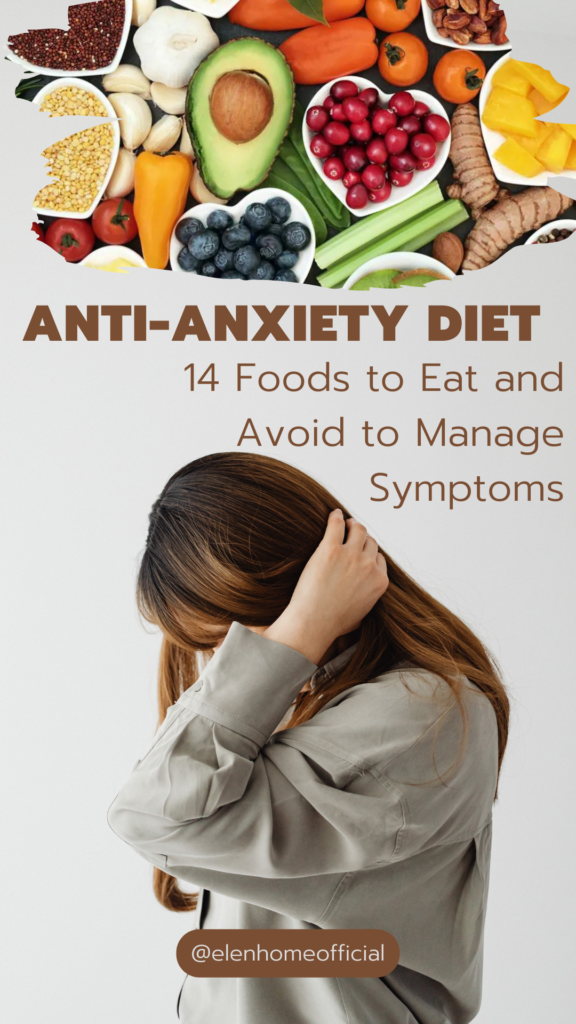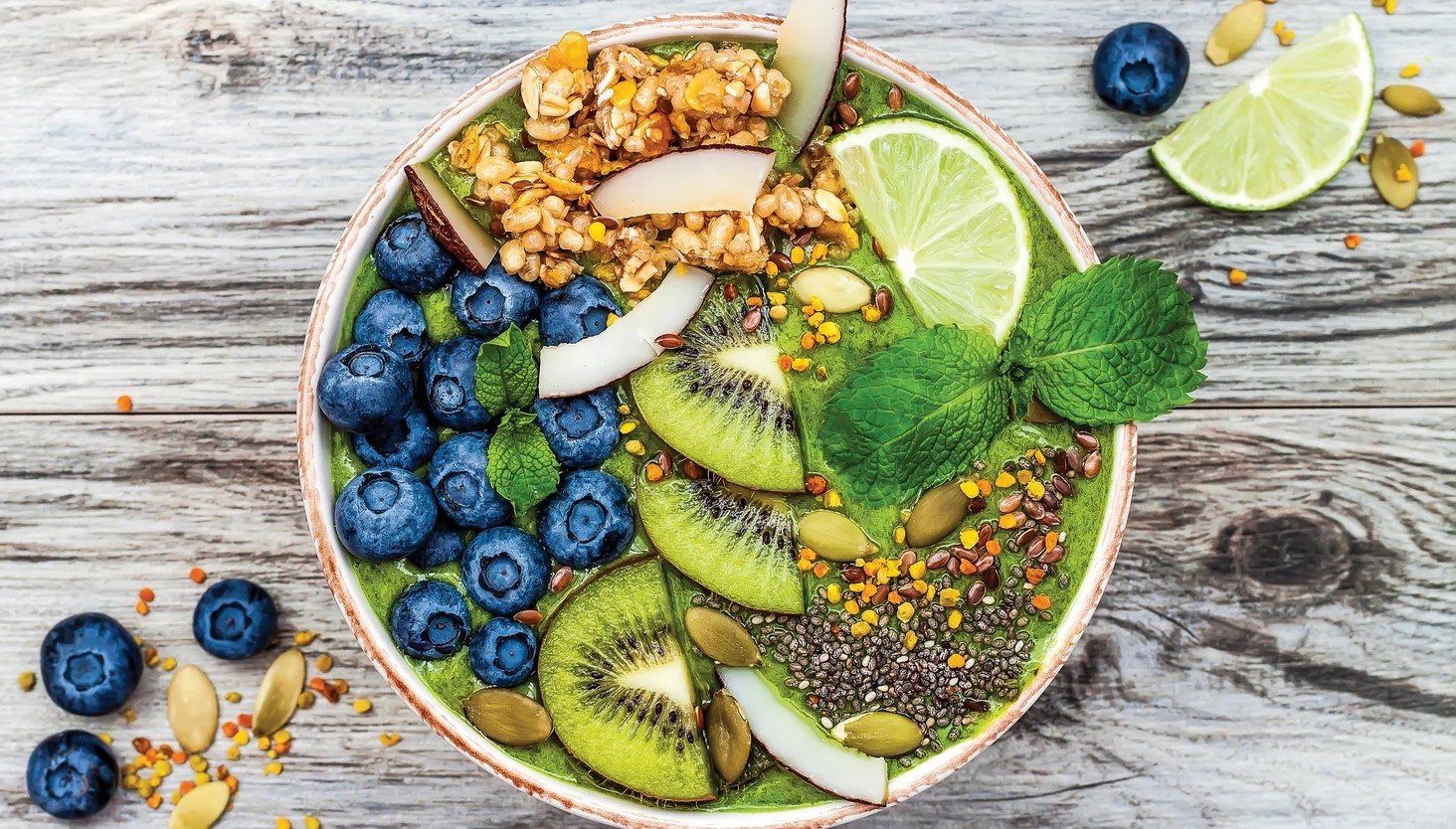I. Introduction
II. Understanding Anxiety and Diet
III. Foods to Eat for Anxiety Management
IV. 1. Complex Carbohydrates
V. 2. Omega-3 Fatty Acids
VI. 3. Probiotics
VII. Foods to Avoid for Anxiety Management
Introduction
Welcome! Are you feeling anxious? Don’t worry, you’re not alone. Anxiety is a common problem that affects many people, but the good news is that there are ways to manage it, including through diet. Yes, you read that right – what you eat can actually have an impact on your anxiety levels! In this article, we’ll explore the relationship between anxiety and diet, and share some foods that can help you manage your anxiety. So sit back, relax, and let’s dive in!
Understanding Anxiety and Diet
Hey there! Are you feeling anxious lately? Don’t worry, you’re not alone. Anxiety is something that many people deal with, and it can be quite overwhelming at times. But did you know that what you eat can actually have an impact on your anxiety levels? It’s true! Your diet plays a crucial role in managing anxiety and promoting overall mental well-being. So, let’s dive into the connection between anxiety and diet, and discover some foods that can help you feel calmer and more at ease.
Anxiety is a complex condition that involves feelings of worry, fear, and unease. It can be triggered by various factors, such as stress, genetics, and even your diet. When it comes to diet and anxiety, the key is to focus on foods that support a healthy brain and nervous system.
So, what are some foods that you should include in your diet to help manage anxiety? Let’s take a look!
1. Complex Carbohydrates
Complex carbohydrates are a great source of energy for your brain. They help regulate serotonin levels, which is a neurotransmitter that plays a key role in mood regulation. Foods like whole grains, brown rice, oats, and sweet potatoes are rich in complex carbohydrates. Including these foods in your diet can help promote a stable mood and reduce anxiety.
2. Omega-3 Fatty Acids
Omega-3 fatty acids are essential fats that have numerous benefits for your brain and mental health. They have been found to reduce inflammation and improve neurotransmitter function, which can help alleviate symptoms of anxiety. Foods rich in omega-3 fatty acids include fatty fish like salmon and sardines, walnuts, chia seeds, and flaxseeds. Adding these foods to your meals can have a positive impact on your anxiety levels.
3. Probiotics
You’ve probably heard of probiotics, which are beneficial bacteria that support a healthy gut. But did you know that your gut health is closely linked to your mental health? Research has shown that imbalances in gut bacteria can contribute to anxiety and other mental health disorders. Including probiotic-rich foods like yogurt, kefir, sauerkraut, and kimchi in your diet can help improve your gut health and potentially reduce anxiety symptoms.
Now that we’ve covered some foods that can help manage anxiety, let’s talk about foods that you should avoid or limit in your diet to promote better mental well-being.
- Avoid or limit caffeine: While many of us rely on that cup of coffee to kickstart our day, too much caffeine can increase anxiety levels. It’s best to limit your intake of caffeinated drinks like coffee, tea, and energy drinks.
- Minimize alcohol consumption: Alcohol may provide temporary relief from anxiety, but in the long run, it can worsen symptoms. It’s important to drink alcohol in moderation and be mindful of its effects on your mental health.
- Reduce processed and sugary foods: Foods high in processed sugars and additives can lead to blood sugar spikes and crashes, which can negatively impact your mood and increase anxiety. Opt for whole, unprocessed foods whenever possible.
Remember, while diet can play a role in managing anxiety, it’s not a cure-all solution. If you’re experiencing severe anxiety or mental health issues, it’s important to seek professional help. A qualified healthcare provider can guide you through a comprehensive treatment plan that may include therapy, medication, and lifestyle changes.
So, there you have it! Understanding the connection between anxiety and diet can empower you to make healthier choices for your mental well-being. Incorporating complex carbohydrates, omega-3 fatty acids, and probiotics into your diet while reducing caffeine, alcohol, and processed foods can make a positive difference in managing anxiety. Take care of yourself, and remember that small changes in your diet can lead to big improvements in your overall mental health. You’ve got this!
III. Foods to Eat for Anxiety Management
When it comes to managing anxiety, what we put into our bodies can have a huge impact on our mental well-being. While there is no magic food that can instantly cure anxiety, incorporating certain foods into our diet can help support our overall mental health and reduce anxiety symptoms.
1. Complex Carbohydrates
Complex carbohydrates are an excellent choice for anxiety management. These carbohydrates provide a steady release of energy, which can help stabilize blood sugar levels and prevent mood swings. Foods like whole grains, sweet potatoes, and legumes are all great sources of complex carbohydrates.
In addition to their stabilizing effect on blood sugar, complex carbohydrates also stimulate the production of serotonin in the brain. Serotonin, often referred to as the “feel-good” hormone, plays a key role in regulating mood and reducing anxiety. So, next time you’re feeling anxious, reach for a bowl of whole grain pasta or a delicious sweet potato.
2. Omega-3 Fatty Acids
Omega-3 fatty acids are essential for brain health and can have a positive impact on anxiety. Research has shown that omega-3s can help reduce inflammation in the brain and promote the production of neurotransmitters that regulate mood, such as serotonin and dopamine.
You can find omega-3 fatty acids in fatty fish like salmon, mackerel, and sardines. If you’re not a fan of fish, don’t worry! Plant-based sources of omega-3s include flaxseeds, chia seeds, and walnuts. Incorporating these foods into your diet can provide you with the omega-3s your brain needs to keep anxiety at bay.
3. Probiotics
Believe it or not, the health of our gut can have a significant impact on our mental health. That’s where probiotics come in. Probiotics are beneficial bacteria that support a healthy gut microbiome, which plays a crucial role in regulating mood and anxiety.
Yogurt, kefir, sauerkraut, and kimchi are all excellent sources of probiotics. By incorporating these foods into your daily diet, you can help promote the growth of beneficial bacteria in your gut, which can help reduce anxiety symptoms.
Remember, it’s not just about what we eat, but also how we eat. Taking the time to sit down, savor your meals, and eat mindfully can also contribute to a sense of calm and well-being.
While incorporating these anxiety-reducing foods into your diet can be beneficial, it’s important to remember that they are not a substitute for professional help. If you’re struggling with anxiety, be sure to reach out to a healthcare professional for guidance and support.
In conclusion, choosing the right foods can play a significant role in managing anxiety. Complex carbohydrates, omega-3 fatty acids, and probiotics are all excellent choices that can support our mental well-being. So, next time you’re feeling anxious, consider reaching for a plate of whole grains, a serving of fatty fish, or a cup of probiotic-rich yogurt. Your body and mind will thank you!
VII. Foods to Avoid for Anxiety Management
When it comes to managing anxiety, it’s not just about what you eat, but also about what you avoid. Certain foods can actually exacerbate anxiety symptoms, so it’s important to be mindful of what you’re putting into your body. Here are some foods that you may want to limit or avoid if you’re struggling with anxiety:
1. Caffeine
For many of us, a morning cup of coffee is essential to kickstart our day. However, if you’re prone to anxiety, you may want to reconsider your caffeine intake. Caffeine is a stimulant that can increase heart rate and trigger feelings of restlessness and nervousness. So, while that cup of coffee may give you a temporary energy boost, it can also contribute to feelings of anxiety and even panic attacks. Try switching to decaf or herbal tea to help calm your nerves.
2. Alcohol
A glass of wine or a cocktail may seem like a good way to unwind after a long day, but alcohol can actually worsen anxiety symptoms. Alcohol is a depressant that affects the central nervous system, and it can disrupt the balance of neurotransmitters in the brain, leading to increased anxiety and even mood swings. If you’re experiencing anxiety, it’s best to avoid alcohol or limit your consumption to moderate levels.
3. Processed Foods
Processed foods, such as fast food, frozen meals, and packaged snacks, are often high in unhealthy fats, sodium, and sugar. These ingredients can wreak havoc on your body and mind. Studies have shown that a diet high in processed foods is associated with an increased risk of anxiety and depression. Instead, opt for whole, unprocessed foods that are rich in nutrients and promote overall well-being.
4. Artificial Sweeteners
While artificial sweeteners may seem like a healthier alternative to sugar, they can actually have negative effects on your mental health. Research has shown that artificial sweeteners, such as aspartame and sucralose, can disrupt the balance of neurotransmitters in the brain and increase anxiety symptoms. It’s best to choose natural sweeteners, such as honey or maple syrup, in moderation.
5. High-Sugar Foods
High-sugar foods, such as candy, soda, and pastries, may provide a temporary mood boost, but they can also contribute to anxiety in the long run. When we consume sugar, our blood sugar levels spike, leading to a surge of energy followed by a crash. This rollercoaster effect can trigger feelings of anxiety and irritability. Instead, opt for fruits or snacks that are low in added sugars to maintain stable blood sugar levels and promote a calmer state of mind.
6. Fried and Greasy Foods
While fried and greasy foods may be tasty, they can wreak havoc on your mental health. Research has shown that a diet high in fried and greasy foods can increase the risk of anxiety and depression. These foods are often high in unhealthy fats that can lead to inflammation in the brain and impair mood regulation. Instead, choose healthier cooking methods like baking, grilling, or steaming to promote both physical and mental well-being.
Remember, managing anxiety is a holistic process that involves more than just diet. It’s important to also prioritize exercise, sleep, and stress management techniques in conjunction with a healthy eating plan. By being mindful of the foods you consume and taking steps to support your mental health, you can better manage your anxiety and live a more fulfilling life.


